75 Pro Death Penalty Quotes by Law Enforcement Officials from the U.S.A

|
Monday 11-04-2011 - “When an individual murders another individual, society must stand up and denounce this act, and if that act was so heinous that it warrants death then that individual chose their fate by his or her actions,” said Sgt. Rich Holton, president of the Hartford Police Union. “The death penalty is not about ‘an eye for an eye or a tooth for a tooth,’ it’s about protecting and safeguarding innocent victims - men, women, children and the elderly - from predators within society who do not have a moral compass and do not value life as the rest of society does. Is it too much to ask that these violent predators forfeit their lives when they did not give their victims a chance?” |
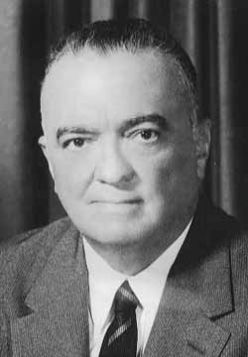
|
Have you ever thought about how many criminals escape punishment, and yet, the victims never have a chance to do that? Are crime victims in the United States today the forgotten people of our time? Do they receive full measure of justice (as cited in Isenberg, 1977, p. 129)? A criminal on death row has a chance to prepare his death, make a will, and make his last statements, etc. while some victims can never do it. There are many other crimes where people are injured by stabbing, rape, theft, etc. To some degree at least, the victims right to freedom and pursuit of happiness is violated. When the assailant is apprehended and charged, he has the power of the judicial process who protects his constitutional rights. What about the victim? The assailant may have compassion from investigating officers, families and friends. Furthermore, the criminal may have organized campaigns of propaganda to build sympathy for him as if he is the one who has been sinned against. These false claims are publicized, for no reason, hence, protecting the criminal (Isenberg, I., 1977). [Whoever did this] must be exterminated, and they must be exterminated by us. {On the perpetrators of the Kansas City Massacre of 1933, as quoted in Public Enemies: America's Greatest Crime Wave and the Birth of the FBI, 1933-34 by Bryan Burrough (2004: Penguin), p. 51} |

|
"When a state puts death row criminals to death quickly, it creates a chilling effect on violent criminals in our society," Sheriff Jack Parker said. "While working in the jail in the 1980s, I often heard inmates say the only thing that kept them from killing their victim was their fear of the (electric) chair. Unfortunately, waiting too many years for a death sentence to be carried out is bad for the victim's family, bad for justice and dilutes any deterrent value." [Sunday 17 July 2011] |

|
Monday 1 August 2011 - Canada should bring back the death penalty as a way of capping Edmonton’s climbing homicide rate, says a world-famous sheriff. “The first thing I would do is execute those who fall under a certain criteria,” Sheriff Joe Arpaio told the Sun. “You should have the death penalty. I think that would go a long way.” In Edmonton, the homicide rate continues to climb. There have been 33 killings so far this year, with the latest four recorded in the past week. Bringing back the death penalty is just the incentive Edmontonians need to stop killing, he said. “Possibly with the death penalty it might make a difference if people feel they could be executed,” Sheriff Joe said. “That person could never kill again anyway.” |
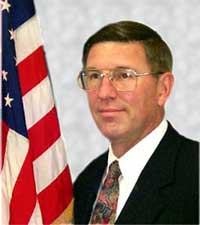
|
On Monday 7 March 2011, Putnam County Sheriff Donald B. Smith said he truly believes that the bill, which deals with "deep moral and ethical issues,” would be a deterrent. “Anything that we can do, Sen. Ball, to make it safer for them [law enforcement officers] to serve, to go out and go to domestic disputes, domestic incidents, to go out on traffic stops in the middle of the night not knowing who’s in the vehicle you’re walking up to, anything we can do to make it safer for them, we should do, and that’s really what this legislation is all about,” Smith said. |
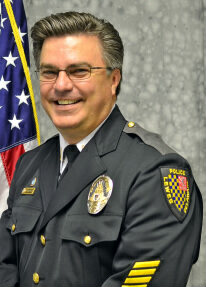
|
Delaware’s police chiefs are staunchly against repealing the death penalty, and on Wednesday 13 March 2013 afternoon they counted the ways. Standing next to the Delaware Law Enforcement Memorial and in the shadows of a Legislative Hall where repeal was proposed the day before through Senate Bill 19, police leadership made its case to gathered media and legislators who looked on before beginning a lawmaking session. Law enforcement, legal counsel and families affected by death row inmate’s deeds spent time discounting pro-abolition of capital punishment in a 25-minute gathering, making their quick talking points and passing out a 26-page packet to support their case. The packet was sent to lawmakers at nearby Legislative Hall who will decide the fate of Senate Bill 19 that would make life imprisonment without the possibility of parole as the first-degree murder punishment. That would alter the sentences of 17 Delaware men currently on death row. Lewes Police Chief Jeffrey Horvath, chairman of the Police Chiefs’ Council, said law enforcement is faced daily with the chance of death at the hands of the worst incorrigibles not affected by deterrents, but not worth trading a police life for, either, with life in prison. “I know of no other occupation in Delaware that has a greater chance on
a daily basis in their job of being murdered (than a police officer),” Mr. Horvath said. Wednesday 20 March 2013 - Jeffrey Horvath, president of the Delaware Police Chiefs’ Council that’s lobbying legislators to keep the death penalty said “What we should be talking about” has nothing to do with “Texas, California or any other state. “Delaware’s system is not broken. If functions quite well as an
effective system … We have many safeguards in place and as I have heard many
times on of the finest judiciaries in the country.” In closing, Mr. Horvath pointed out that Delaware’s police chiefs presented a 26-page argument for retaining capital punishment to legislators last week, and a letter that ended with: “The murder victims, their families and the good citizens of the State of Delaware deserve to have their lives valued at the same level at least of that of the murderer’s. They deserve to have a criminal justice system that they can trust to do justice.” Friday 12 April 2013 – In the last six years, six states have abandoned the death penalty. Should state lawmakers repeal capital punishment, that would make Delaware the seventh. “I think if we took it to a popular vote, I'm confident that the majority of the people in the state of Delaware would support the death penalty,” said Lewes Police Chief Jeffrey Horvath. Horvath heads up Delaware's Police Chiefs’ Council. He believes the death penalty not only provides closure to murder victims’ family members, but also brings justice to society. “The people
that have been executed from 1976 until 2012, you'll see that they all were
heinous criminals, they were evil people and they deserved the death penalty.” Proponents of the repeal argue the death penalty costs taxpayers more than life in prison, the threat of capital punishment does not deter criminals and there’s always the possibility of a wrongful conviction. "Our senators and now our representatives should only be concerned with the death penalty as it applies to the state of Delaware," Horvath said. "No one has been put to death in Delaware that should not have been." Not only that, Horvath says the threat of a death sentence does protect law enforcement. "When I was in the drug unit, we used to arrest guys and they would carry a certain amount of drugs because, if they got over that threshold, they knew they were going to get mandatory jail time. So that mandatory sentence for trafficking cocaine was a deterrent for how much drugs they carried on their person. So you can't tell me that this death penalty isn't a deterrent to some people." |
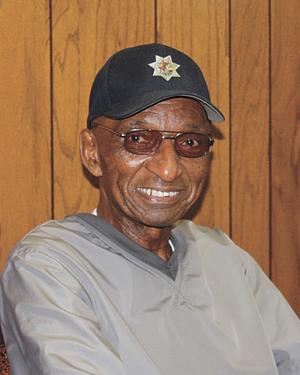
|
Saturday 19 March 2011 – A former
assistant warden at Pontiac Correctional Center believes Governor Pat Quinn
made a bad decision in abolishing Illinois’ death penalty. “I am very upset with the governor’s decision. During my 38 years at PCC I was involved with many Death Row inmates,” Lou Lowery said in an interview with The Daily Leader Friday afternoon. ”I still say a person who did killing(s) deserves to die.”
Lowery said he understands that inmates in Illinois in the past have been in
Condemned Units and then been exonerated. Saturday 19 March 2011 - “I
am glad that the actual killers were found or it became clear that the person
sentenced to death was innocent. Get the innocent people off of Death Row, let
them go, but don’t abolish the death sentence and commute the death sentences
like Quinn did.” Saturday 19 March 2011 - Lowery said he feels especially fearful of the 15 men whose sentences were recently commuted. “Some of these men were on Death Row for more than one murder. I am not an attorney. But I know what I feel and that is that a life sentence doesn’t mean they won’t escape or kill somebody else,” he said. |
|
In the late 1980s, John Groncki was working as a Baltimore City police officer in the K-9 unit when he came upon four people he believed had just committed an armed robbery. He followed standard procedure and searched all four men for weapons. Finding none, he continued to follow protocol and called for a transport, which is when the men were searched again. "I was standing there on the side when all of the suspects were being searched and the one individual was hiding a gun in his crotch area," Groncki said. "The little hairs on the back of my neck started going up when he pulled that gun out of the suspect's pants." Groncki said he wasn't happy he had missed the gun, but thanked the alleged robber for not killing him. "He said, 'I ain't going to death row,' " Groncki recalled,”I think that absolutely prohibited him from using that gun on me -- he simply didn't want to go to death row." While the death penalty may have scared the criminal enough to save Groncki's life, whether or not the death penalty is a deterrent has fueled debates for years in statehouses throughout the United States, and Maryland is no exception. |
|
|
“He got exactly what he deserved,” Reeves said of convicted murderer Holly Wood, 50, of Troy, who was executed Thursday 9 September 2010 at Holman Prison in Atmore. He was the fourth Alabama inmate to be executed this year. “I heard on TV some of his family was down there hollering and praying. Well, she (his victim) didn’t have a chance to do that.” “I was probably involved in two dozen or so since 1973 that ended up with the death penalty conviction,” he said, adding that of those convictions many have been converted to life without parole and in other cases, the inmates remain on death row, waiting resolution of their appeals. Wood’s case is the first execution he can remember from Pike County in the last 50 years, or more. But then again, Reeves said, Wood’s case is among the more brutal crimes he can remember, as well. Woods was convicted of killing his former 34-year-old girlfriend Ruby Gosha on Sept. 1, 1993. He broke into her home and shot her in the head with a shotgun while she slept. “It was just a really vicious, vicious crime,” Reeves said. But he said the flaws fail to take into account the feelings and considerations of the victims of crimes. “The victims are forgotten in the process,” he said. |
|
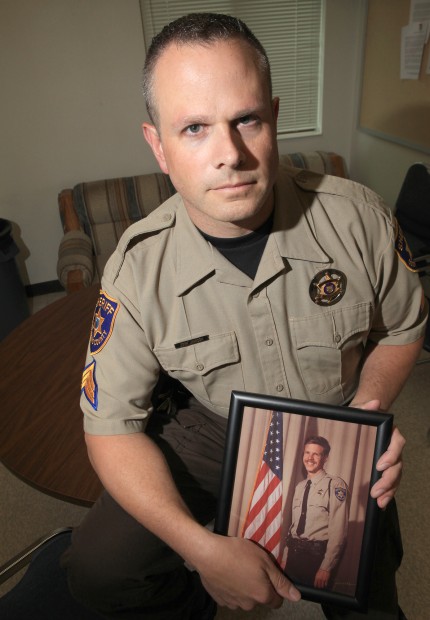
|
John Milton Jamison II -- "John" is a family name, and he was named for his grandfather -- was 13 when his father died. By the time Chaney was executed in 2000, the younger Jamison was, like his father, a police officer. He is currently a sergeant with the Coconino County Sheriff's Office, the same agency his father joined as a reservist. The younger John was deeply angry about his father's death at Chaney's hands. The first and last time John saw the man that he called an "animal" was on the day of his execution. He looked at him through the glass partition in the death chamber, and he felt like Chaney stared back. And he rued that he did not stop by his father's medical office, like he often did, in the days before his death. Grieved, he rode his bike to the mortuary while his father was being prepared for burial and asked to see his remains. He didn't until the funeral. But when Chaney was sentenced to death in 1983, it sounded good to the young man. He hated Chaney, and frankly, his feelings didn't change much over time. He reflects now with sadness for his father and a more matter-of-fact tone about Chaney. "I'm just glad I don't have to deal with it anymore," he said. "It's a load off, to say the least." There was a roller coaster of emotions: He'd get excited that the execution was around the corner, then deflate when it wasn't. He worried that Chaney would get out, or that his appeals for mercy would be granted, or that the death penalty would be abolished before he was executed. And as a police officer of nearly 20 years now, he understands how the system works.
|

|
Friday 8 July 2011 - Ron Cottingham, president of the Peace Officers Research Association of California, said passing the bill "will put a target on the back of my members and every peace officer in California" because criminals will know they will face only "three hots and a cot" for killing an officer. At a hearing on the bill July 7 2011 before the Assembly Public Safety Committee, Ron Cottingham, the president of the Peace Officers Research Association of California, acknowledged the system is expensive but argued it can be streamlined with the deterrent value – he believes – of the death penalty kept in place. In an interview he added, “But what price is justice? How do you tell the mother of a (murder victim) that this person will have three hots and a cot for the rest of his life? How do you tell a women’s group and victims’ families that someone who kidnapped, tortured and raped women that lives did not really mean that much to the state because the state is not going after the ultimate punishment?” |

|
"If somebody is going to kill a cop, they know they're going to face a death sentence. It's going to protect that police officer," said Tim Yaryan, a lobbyist for the Los Angeles Police Protective League. [Thursday 7 July 2011] |
|
|
“We are doing God's work and God approves of capital punishment.” "Even if mistakes are made it does not change the fact that we are engaged in meaningful service to God and Country," he wrote. "Always know that God, in whatever form you picture Him, recognizes our sacrifice and service."
He also says that he tried to join one of Utah's death penalty firing squads because he feels that "just as a soldier taking a life on the battlefield, or a police officer taking a life to protect himself or others, or a citizen taking a life to protect his own or another, it is okay because God is okay with it!" |

|
On Monday 11 July 2011, the Los Angeles Police Protective League issued a statement calling the proposal a "galling move" because, it argues, the people who support the bill have been trying to thwart the death penalty for years and have thus been driving up those costs that SB 490 seeks to drive down. On average, five years pass before appellate counsel is appointed to death row inmates, and at least another five years pass before their first appeal is heard. These delays happen because death penalty opponents in the Legislature refuse to authorize market-rate pay for the attorneys, thereby creating a shortage of appellate lawyers for these cases. The Legislature also refuses to consider having California Appellate Courts hear the appeals, ensuring a lengthy wait before the backlogged California Supreme Court hears the appeal. |
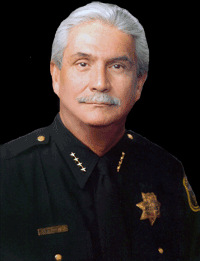
|
Some in law enforcement feel the death penalty does need to be reformed, but not completely abolished. “I do support capital punishment to a degree,” said Yolo County Sheriff Ed Prieto, who is concerned about the rising cost of the death penalty. “I think there are certain individuals that commit such hideous crimes, they forfeit the right to walk among us.” [Wednesday 21 September 2011] |
|
Pamplin's son Larry, the current sheriff of Falls County, appeared at McDuff's Houston trial for the 1992 abduction and murder of Melissa Northrup. "Kenneth McDuff is absolutely the most vicious and savage individual I know,'' he told reporters. ”He has absolutely no conscience, and I think he enjoys killing.'' If McDuff had been executed as scheduled, he said, "no telling how many lives would have been saved.'' |
|

|
Billings, a supporter of capital punishment, said he viewed each execution he participated in as an extension of his duty as an officer to "obey a lawful court's order of execution." He also decried society's unwillingness to impose the death penalty in cases where he believes it is warranted and its concern over whether condemned prisoners suffer when they are executed. "Nobody thinks about what they inflicted on their victims," Billings said. "It's sad. People can't even name the victims, but they can name these guys."
|
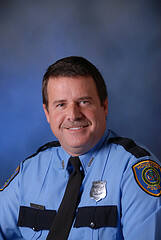
|
Ray Hunt, president of the Houston Police Officers Union, was among those present. Afterward, he said of Williams, "the fact that to the end he continued to ridicule police officers shows what a thug he was...I have no sympathy for him. I have sympathy for his family, but not for him." [Jeffrey Demond Williams was executed by lethal injection in Texas on 15 May 2013] |

|
Police Chief Ricky Boren, flanked by more than a half dozen investigators, applauded Slater’s decision to seek capital punishment in the case. “I think it sends a clear message to people in this community that wish to take another one’s life for something as senseless as what happened to Mr. Jackson on Carter Avenue,” he said. [Wednesday 20 July 2011 – Praising the decision of DA Julia Slater when she seek the death penalty of against Ricardo J. Strozier, the Columbus man charged last year in the fatal shooting of 25-year-old Heath Jackson on 7 September 2010] |

|
"We don't discuss our execution protocols. ... The Virginia Department of Corrections is tasked by the General Assembly to carry out court-ordered executions and has the means to do so." [Wednesday 9 May 2012] |

|
Tuesday 5 April 2011 - "If anyone warrants the penalty of death, it's Ronell Wilson," added Detectives Endowment Association president Michael Palladino. Michael J. Palladino, president of the Detectives' Endowment Association said after Wilson's court appearance last month that he's anxious for a retrial. "Anything less than the death penalty would be short of justice," he told the Advance. [Monday 8 April 2011] |

|
November 9, 2009 LKL WEB EXCLUSIVE - Sniper Police Chief: "I've Seen Enough Death"LKL Blog: What are your feelings about the execution of John Allen Muhammad? Chief Moose: We live in a nation of laws. The people of Virginia made their decision based on the evidence. It's good to see the system works, and the people's will is going to be carried out.
LKL Blog: But how do you personally feel about capital punishment? Moose: I believe in it, because it's the law in Virginia. But if for some reason people decided we wouldn't do that any more, it wouldn't bother me. LKL Blog: What are your feelings about John Allen Muhammad? Moose: I'm not sure I have personal feelings about that individual. His crimes were horrible. I'm pleased they were captured, and the crimes and violence stopped (the other sniper was 17-year-old Lee Boyd Malvo). His execution is a reminder, when you do something, you have to pay the price. I hope this execution is a deterrent, and sends the message that this type of behavior is unacceptable.
|
|
"Anyone who kills a cop,
especially in the fashion this individual did, doesn't deserve a life behind
bars."
Referring to the murder of his friend, Lakewood officer Christopher Matlosz. |
|
|
|
Death penalty is justified in some cases March 05, 2011 - So many people want to end the death penalty because they claim it costs too much money and is flawed. They seem to think that life in prison would be much cheaper. They are wrong. They also believe the appeals process does not bring closure to victims' families. The families do not want the death penalty ended. They want the justice system to be corrected so they can see justice done properly and then they can get on with their life and hopefully live in peace. Death penalty is justified in some cases March 05, 2011 - Many other nations do justice in their own way and dispose of murderers without due process. In this day and age of DNA and forensic evidence, mistakes are not made anymore in this country. I also believe in the death penalty as long as it is proven without a doubt that the person charged committed the crime. I was a police officer for many years, and my partner, Phil Fahy, and many other fine police officers and citizens were murdered. They received the death penalty by the murderer. |
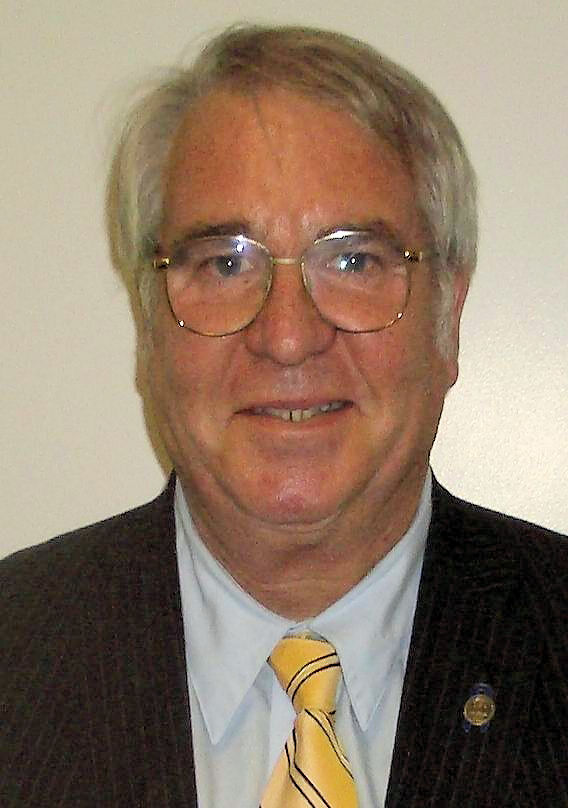
|
Virtually every major law enforcement association has endorsed Cooley, partly because of fallout over the death penalty. John Lovell, representing police chief and narcotics officer associations, said Cooley was endorsed primarily because of his own record but that Harris' handling of the Espinoza case was a "very large issue" that lingers. "I think the feeling in the law enforcement community is that if a peace officer is murdered in the line of duty, the death penalty is an appropriate sanction," Lovell said. |

|
Allegedly it “is unnecessary, dangerous
and creates a risk of excruciating pain” (emphasis added). Dangerous? To whom?
The executioners? I thought the drugs were designed to painlessly put hideous
first-degree murderers to death. The last time I checked, no one put to death
by this method has come back to complain of pain. So what’s the issue? [You'd Never Know It, but
California Really Does Have the Death Penalty Monday January 2, 2012] The legal arguments that the current lethal cocktail of drugs risks “excruciating pain” is simply ridiculous. It is merely another reason the public hates attorneys, and for good reason. Murder victims cannot escape “excruciating pain,” so why should the courts be concerned about the condemned? The idea that a drug designed to put you to sleep causes “excruciating pain” before another drug kills you is so nonsensical that it defies all logic. That makes as much sense as a mortician’s concern about a dead body’s bare feet being cold in a casket. [You'd Never Know It, but California Really Does Have the Death Penalty Monday January 2, 2012] |
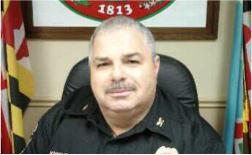
|
Thursday 14 February 2013 - Smithsburg Police Chief George L. Knight Jr., who was in Annapolis to express his opposition to the repeal, said the murder of a law enforcement officer is “so heinous that it deserves the ultimate sacrifice.” “There has to be some kind of a deterrent to keep a career criminal or criminals from taking the life of a law enforcement officer while they are performing their duties,” Knight said. “I believe they need to give us the tools to do that [as a deterrent against criminals]. Taking away the death penalty option takes away that tool.” |

|
Former Boston Police Commissioner Bill Bratton said Tuesday 16 April 2013 that those responsible for the bombing of the city’s marathon should be put to death. Bratton said he had “every confidence” that the authorities would “get to the bottom of this and bring those responsible to justice.” Massachusetts abolished capital punishment in 1984, but Bratton said the federal authorities could take over the prosecution of terrorist acts like this and a federal court could pass the death sentence. “I think this act would be an appropriate use of the death penalty as a penalty for the crime,” he said. |

|
The State of Michigan needs to have the Death Penalty for extreme cases such as what recently happened in Fort Wayne. Let’s not wait until it is too late. [Aliahna, Plumadore and the Death Penalty by Dave Schultz, Detroit Crime Prevention Examiner on Friday December 30, 2011] |
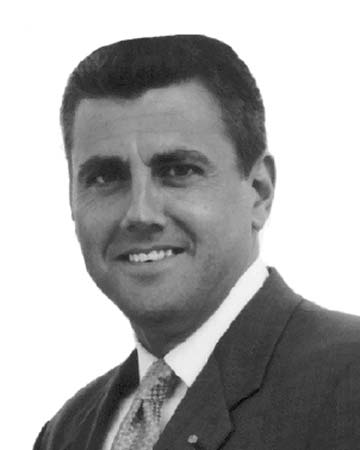
|
Wednesday 15 February 2012 - Surfside Beach Police Chief Mike Frederick said the actual impact on home invasion crimes will likely be minimal, but added he could not think of a reason any law enforcement agency would object to the Home Invasion protection Act. "Most criminologists would agree it's now going to have a wide ranging, easily discernable impact on the home invasion scene," Frederick stressed. "But if it deters one person, that's great." |

|
Governor Pat Quinn signed the bill which abolished the death penalty in Illinois on Wednesday 9 March 2011: Several prosecutors and the Fraternal Order of Police had lobbied to keep the death penalty, arguing that reforms passed after Ryan's moratorium had improved the system and that the threat of execution deterred crime. Ted Street, the state FOP president, said execution should remain a potential punishment in "extreme cases" like the killing of a police officer or a child. And police and prosecutors have used the threat of the death penalty to help obtain a suspect's cooperation, he said. "The criminal, when they know their cooperation in an investigation will yield that case not being forwarded to the death penalty, they might be more cooperative. And we've seen that many times," Street said. He predicted opponents in the legislature would try to reinstate capital punishment before long. "I believe it's going to prove over time to be problematic," Street said.
|
|
But the New Mexico Sheriffs' and Police Association argues that capital punishment deters violence against police officers, jailers and prison guards. "We have had many interviews with the assailant who said they would have killed a cop had it not been for the potential of the death penalty," said Jim Burleson, head of the association. |
|
|
John Coughlin, a retired New York City policeman, has recounted that when he “patrolled Flatbush Avenue in the 1950s” – a time New York regularly carried out executions – “at least half the time when we stopped an armed robbery, the gun turned out to be unloaded.” Coughlin explains: “The criminals wanted the fear of the gun, but they didn’t want even the slightest possibility that the gun might accidentally go off. That meant ‘going to the chair.’” The Capital Question, National Review, July 17, 2000, at 4245. |
|
|
Wednesday 30 March 2011 - Gary L. Przewoznik, president of Lakewood Policemen’s Benevolent Association Local 71, said law enforcement would appreciate that kind of support. “Bringing back the death penalty may help deter criminals from committing violent crimes — and at this point, law enforcement can use all the help we can get,” Przewoznik said. |
|
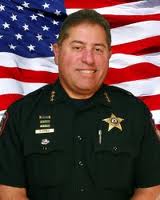
|
Governor Pat Quinn signed the bill which abolished the death penalty in Illinois on Wednesday 9 March 2011:
Kane County Sheriff Pat Perez said the decision would not impact
operations at his office.
|
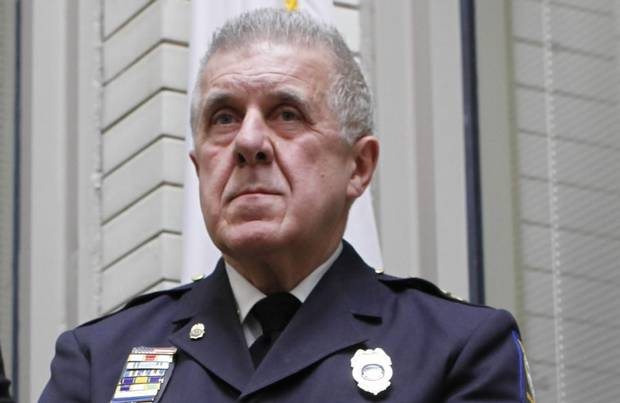
|
Saturday 22 October 2011 - Statistically, gang violence in the region has decreased over the past two years, and Hochul contends that prosecutions undertaken by his office with the FBI and other agencies helped. Buffalo Police Commissioner Daniel Derenda and Niagara Falls Police Superintendent John R. Chella agree. "I would absolutely not want to see the [federal] death penalty taken off the books," said Chella. “While such cases rarely lead to executions, they often lead to guilty pleas that put violent criminals in prison for decades, sometimes life”, Chella said. |
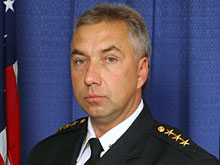
|
Saturday 22 October 2011 - Statistically, gang violence in the region has decreased over the past two years, and Hochul contends that prosecutions undertaken by his office with the FBI and other agencies helped. Buffalo Police Commissioner Daniel Derenda and Niagara Falls Police Superintendent John R. Chella agree. "[Hochul] has helped us to take some very, very dangerous people off the streets," Derenda said. |

|
Passage of Proposition 34, the initiative on the November ballot that would replace the death penalty in California with life imprisonment without the possibility of parole, would "put law enforcement at risk," the president of the union representing San Diego County Sheriff's Department deputies said Friday 5 October 2012. "Eliminating the death penalty would impact public safety," Deputy Sheriffs' Association of San Diego President Dave Schaller said in conjunction with the campaign against the measure announcing additions to the list of law enforcement unions opposed to the proposition. |
|
Balance is
the key to living in a society that is both free and willing to protect itself.
It is the reason the scales of justice are such a powerful symbol. To maintain
their symmetry, our courts must be allowed to use all useful tools. Even one as
dire as capital punishment. [Balancing ethics and the death
penalty Post by Brian O'Neill on |
|
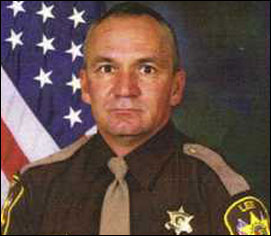
|
Judge Jacob A. Walker III sentenced Gregory Lance Henderson to death Thursday 20 September 2012 for the 2009 murder of a Lee County sheriff's deputy, overriding a jury's recommendation in a capital case for the second time in as many years. Henderson, a Bibb City native, was convicted last year of running over and killing Deputy James W. Anderson during an attempted traffic stop. Jurors, in a 9-3 vote, recommended Henderson be sentenced to life in prison without parole. Alabama judges have the final say in capital cases, and Walker had been urged by law enforcement officials to send Henderson to death row. Lee County Sheriff Jay Jones had testified that Henderson deserved the "severest punishment" for his actions, and Attorney General Luther Strange had attended a hearing this summer in which Henderson was expected to be sentenced. "Nothing can bring James back, but I believe there is a degree of closure provided to his loved ones and the law enforcement community in light of the court's decision today," Jones said Thursday. "We should never tolerate the deliberate killing of a law officer while performing their sworn duty. The punishment should fit the crime -- this sentence does just that." |
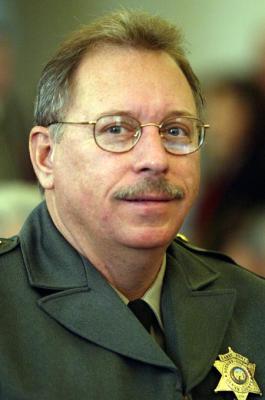
|
Glenn County Sheriff Larry Jones said that while the prospect of saving money and redirecting those resources to law enforcement might be appealing to voters, he agrees there is no possible price that should be placed on a human life. "There are crimes that by their very nature are so egregious and shocking to the collective conscience of society, that the finality of justice must be certain in dealing with those who show such wanton disregard for that human life," Jones said. [Tuesday 25 October 2011] Jones said child killers, cops killers and sniper killers are examples where the death penalty is justified. "If properly convicted beyond a moral certainty, their crimes not only deserve the death penalty, they demand it," he said. [Tuesday 25 October 2011] |
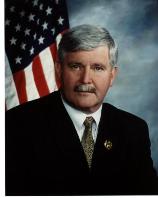
|
Although the coalition to end the death penalty boasts support from a variety of interests, including humanitarian and religions organizations, plus many law enforcement agencies, not all in California agree the death penalty should be removed. "It's not the voters who sentence people to death, but a jury," said Colusa County Sheriff Scott Marshall. "I believe a jury should continue to have that option." [Tuesday 25 October 2011] Marshall, and others in law enforcement, believes the promise of money to end the death penalty crosses the line. "In order for justice to be served, there cannot be financial strings tied to it," Marshall said. [Tuesday 25 October 2011] |

|
Wicomico County Sheriff Mike Lewis was there to testify against the bill. He said there are many cases in which the death penalty would be a necessary punishment. He cited the case against Thomas Leggs, who is accused of killing Sarah Foxwell. "We have to keep the death penalty. I'm totally against the abolishment of the death penalty," said Lewis.
|
|
"The Supreme Court in the United States affirmed capital punishment back in 1977, and the state of California has a law that allows for capital punishment. "He certainly fits the bill, the jury heard the case and they decided he should die and, quite honestly, I think that's what needs to occur." Referring to the execution of Stanley Williams |
|
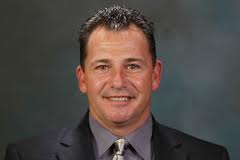
|
“You guys in AZ are life-savers.” - upon being resupplied with sodium thiopental from the Arizona Department of Corrections to carry out lethal injection on 9 December 2010. |

|
Anderson County Sheriff John Skipper said that home invasions are rare in Anderson County. One recent and well-publicized case, in which several people are accused of breaking into a home and later engaging in a shootout at McClure Road in the county, would not meet the definitions of a home invasion. There was nobody at the home when the accused burglars entered so it would be considered a burglary case. Skipper said that despite the rarity of the crime, he supports the bill. “It gives us a bit more teeth in the law,” he said. “When you break in, knowing people are there, the penalty should be more severe.” Skipper said Tuesday, and told residents from around McClure Road in December, that many, if not most, home invasions are not random acts and the perpetrator knows the victim to some degree. “With that said, it is still traumatic on those folks,” he said. |
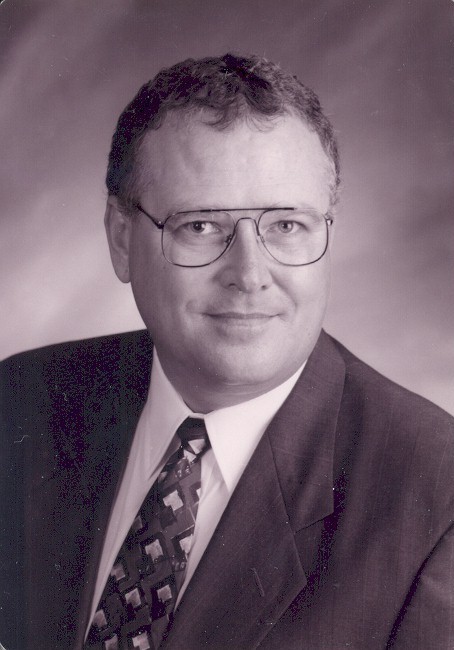
|
Sheriff
Richard Mowell, who investigated the case, said it's his job to protect
families from people like Elijah Page. "Never, in my 35 years of law enforcement experience, have I
seen such violent torturous death as that of Chester Allen Poage," said
Mowell. "I can assure you, after witnessing what I witnessed tonight, that
not only did Elijah Page have a much quieter, quicker and apparently to me,
painless death, but I can assure you he will never do this again." |
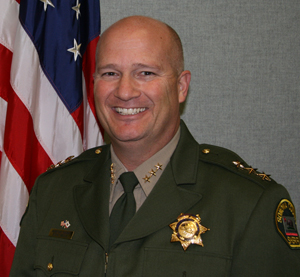
|
Sonoma County Sheriff Steve Freitas said he hopes that the measure prompts an analysis of costs among states that use the death penalty, but he stopped short of taking a stand on the issue. "I would hope the death penalty could be administered in an efficient way," Freitas said. "But I want whatever the victims want. Some victims don't support it, but for other victims, it gives them a sense of closure." |
|
|
Governor Pat Quinn signed the bill which abolished the death penalty in Illinois on Wednesday 9 March 2011: McHenry County Sheriff Keith Nygren said that the death penalty debate was one with which he personally struggles. “I always have had questions in my mind about the death penalty and how it’s applied,” Nygren said. “You could commit a horrible crime where there’s no question that you did it in Wisconsin and you’d go to prison. In Illinois, you could go to death.” “I always felt that if you’re going to have a death penalty, there should be a national standard so people are treated the same in each state.” Nygren also said that if he had a family member who was murdered, he’d want to see the death penalty invoked. |
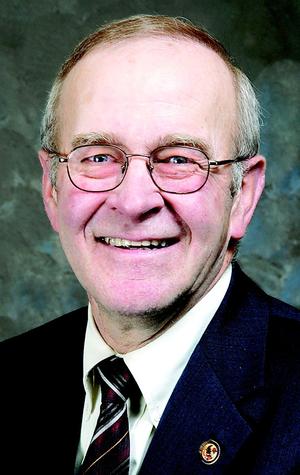
|
Republican
Rep. Jim Sacia, a former FBI agent from Pecatonica, said threatening defendants
with the death penalty often can make them talk to authorities to help solve
crimes. |
|
|
Wednesday 26 June 2013 - Charles Thomas O'Reilly supported capital punishment when he oversaw his first Texas execution. And he still supported it after his 100th. In six years as warden of the Huntsville Unit, the prison that houses Texas' death chamber, O'Reilly supervised about 140 executions — more than any other warden in state history. Now retired, he reflected on his career this week as the nation's busiest death penalty state as the state executed its 500th inmate since resuming capital punishment in 1982. The 62-year-old said he has no regrets about a process he considered to be a relatively unemotional and small part of his job. "If you do 140 of them and then decide you can't do them, then I think you've pushed it a little too far," O'Reilly said during an interview with The Associated Press in Forney, about 175 miles away from Huntsville. "If you can't do it, you should have made that decision after one, or maybe two." Speaking in a low Texas drawl, O'Reilly's voice hardens when asked about his personal views on the death penalty. He said it's the appropriate way to deal with society's worst criminals, such as someone who rapes and kills a 7-year-old girl. "As far as I'm concerned, that person probably got a just punishment for the crime that he committed," O'Reilly said. "Like me or anybody else, we all have to take responsibility for our own actions. Our actions are our choice. The consequences for those actions are not our choice." Although the fight over the death penalty is often heated, O'Reilly said the process of an execution is quiet and simple. "It doesn't take long. There's not a lot said," O'Reilly said. "All you're going to do there is watch a guy go to sleep." |
|
|
On 26 June 2007 Randall County Sheriff Joel Richardson witnessed Knight's execution and was chief deputy in the Texas Panhandle county in 1991 when Knight was arrested for capital murder for the slayings of Walter Werner, 58, and his 56-year-old wife, Mary Ann. "It puzzled me a little bit," he said of Knight's final comments. "It wasn't much of a joke. I don't know of anything Patrick Knight has done since 1991 that I consider funny." He and Texas prison officials also disputed Knight's identity claim, insisting they used fingerprints to ensure the inmate was Knight. "This evening's execution brought an end to an almost 16-year nightmare for a family," Richardson said. "Patrick Knight started that nightmare.”Mary and Walter Werner will not be brought back because of anything that happened here tonight, but Patrick Knight certainly won't be able to do this to anybody else again... And despite all the hype about his joke, it turns out he's not much of a comedian. He's simply an executed cold-blooded killer." |

|
On Friday 18 February 2011, An Oregon death sentence for a California man convicted of murdering a lesbian couple in Medford in 1995 has been reduced to life in prison after he was diagnosed as delusional and unable to aid in his own appeals. Robert James Acremant will remain in prison without the possibility of parole for the murder, kidnapping and robbery of Roxanne Ellis and Michelle Abdill.
Medford police Deputy Chief Tim George, who helped
investigate the murders of Abdill and Ellis, said he believes commuting
Acremant's sentence to life without parole was probably the right thing to do,
considering the legal issues.
|